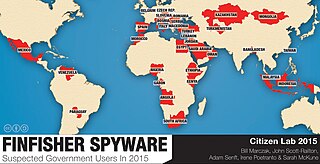 W
WIn computing, a Trojan horse is any malware which misleads users of its true intent. The term is derived from the Ancient Greek story of the deceptive Trojan Horse that led to the fall of the city of Troy.
 W
WAIDS, also known as Aids Info Disk or PC Cyborg Trojan, is a Trojan horse that replaces the AUTOEXEC.BAT file, which would then be used by AIDS to count the number of times the computer has booted. Once this boot count reaches 90, AIDS hides directories and encrypts the names of all files on drive C:, at which time the user is asked to 'renew the license' and contact PC Cyborg Corporation for payment. There exists more than one version of AIDS, and at least one version does not wait to mung drive C:, but will hide directories and encrypt file names upon the first boot after AIDS is installed. The AIDS software also presented to the user an end user license agreement, some of which read:If you install [this] on a microcomputer... then under terms of this license you agree to pay PC Cyborg Corporation in full for the cost of leasing these programs... In the case of your breach of this license agreement, PC Cyborg reserves the right to take legal action necessary to recover any outstanding debts payable to PC Cyborg Corporation and to use program mechanisms to ensure termination of your use... These program mechanisms will adversely affect other program applications... You are hereby advised of the most serious consequences of your failure to abide by the terms of this license agreement; your conscience may haunt you for the rest of your life... and your [PC] will stop functioning normally... You are strictly prohibited from sharing [this product] with others...
 W
WThe ANOM sting operation is a collaboration by law enforcement agencies from several countries, running between 2018 and 2021, that intercepted millions of messages sent through the supposedly secure smartphone-based messaging app ANOM. The ANOM service was widely used by criminals, but instead of providing secure communication, it was actually a trojan horse covertly distributed by the United States Federal Bureau of Investigation (FBI) and the Australian Federal Police (AFP), enabling them to monitor all communications. Through collaboration with other law enforcement agencies worldwide, the operation resulted in the arrest of over 800 suspects allegedly involved in criminal activity, in 16 countries. Among the arrested people were alleged members of Australian-based Italian mafia, Albanian organised crime, outlaw motorcycle clubs, drug syndicates and other organised crime groups.
 W
WThe Cuckoo's Egg: Tracking a Spy Through the Maze of Computer Espionage is a 1989 book written by Clifford Stoll. It is his first-person account of the hunt for a computer hacker who broke into a computer at the Lawrence Berkeley National Laboratory (LBNL).
 W
WExtended Copy Protection (XCP) is a software package developed by the British company First 4 Internet and sold as a copy protection or digital rights management (DRM) scheme for Compact Discs. It was used on some CDs distributed by Sony BMG and sparked the 2005 Sony BMG CD copy protection scandal; in that context it is also known as the Sony rootkit.
 W
WTrojan:Win32/FakeSysdef, originally dispersed as an application called "HDD Defragmenter" hence the name "FakeSysdef" or "Fake System Defragmenter", is a Trojan targeting the Microsoft Windows operating system that was first documented in late 2010.
 W
WFinFisher, also known as FinSpy, is surveillance software marketed by Lench IT Solutions plc, which markets the spyware through law enforcement channels.
 W
WKeRanger is a ransomware trojan horse targeting computers running macOS. Discovered on March 4, 2016, by Palo Alto Networks, it affected more than 7,000 Mac users.
 W
WMiniPanzer and MegaPanzer are two variants of Bundestrojaner written for ERA IT Solutions by software engineer Ruben Unteregger, and later used by Switzerland's Federal Department of Environment, Transport, Energy and Communications (UVEK) to intercept Skype and more generally voice over IP traffic on Windows XP systems.
 W
WThe Chaos Computer Club (CCC) is Europe's largest association of hackers with 7700 registered members. Founded in 1981, the association is incorporated as an eingetragener Verein in Germany, with local chapters in various cities in Germany and the surrounding countries, particularly where there are German-speaking communities. Since 1985, some chapters in Switzerland have organized an independent sister association called the Chaos Computer Club Schweiz (CCC-CH) instead.
 W
WThis timeline of computer viruses and worms presents a chronological timeline of noteworthy computer viruses, computer worms, Trojan horses, similar malware, related research and events.
 W
WMaksim Viktorovich Yakubets is a Russian national and a computer expert. He is alleged to have been a member of the Jabber Zeus Crew, as well as the alleged leader of the Bugat malware conspiracy.